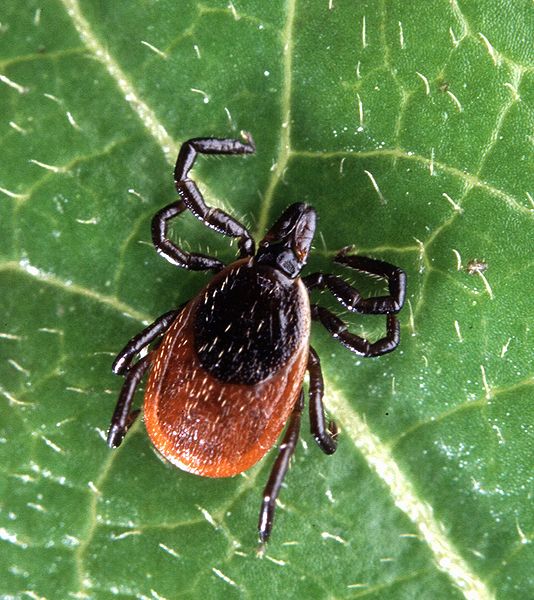 It’s been a hot sticky summer so far. This may not be ideal whether for us humans, but the ticks are loving it.
It’s been a hot sticky summer so far. This may not be ideal whether for us humans, but the ticks are loving it.
And if there’s one thing you don’t want to bring home with you after a trip outdoors, it’s a deer tick. This pesky insect thrives in the summertime and is the primary culprit of Lyme disease in Massachusetts.
Types of Ticks
There are two types of ticks common in Massachusetts: the deer tick (I. scapularis) shown here and the dog tick. An adult deer tick is substantially smaller than the more common dog tick, however size is not always a useful indicator since an engorged tick can be several times the size of one that has not fed. It is far better to avoid ticks altogether than to attempt to differentiate between deer ticks and dog ticks.
How to Check for Ticks
The best way to reduce your chances of getting Lyme disease is to do a proper tick check after being outdoors (even if it’s just in your backyard). Here’s how:
Step 1: Scour your clothing. Ticks latch on to clothing from the top of low-lying vegetation, such as grass and shrubs, so pants are a good place to start. Once clothing is removed, throw it in the wash.
Step 2: Scour your body (or your kid’s body). Ticks like to hide in crevices. Be sure to look under the arms, behind and inside ears, around the hairline, through the scalp, behind knees, between toes, inside belly buttons, and around the waist.
Step 3: Take a warm shower or bath. This may help dislodge any ticks that haven’t yet attached. And also provides another opportunity to look for any stragglers.
Found a Tick?
If you discover an embedded tick, use fine-tipped tweezers to grasp the tick as close to your skin’s surface as possible and pull straight out with steady, even pressure. If you wish to have it tested for Lyme, immediately place the tick in a sealable plastic bag.
Cleanse the bite area with rubbing alcohol and wash your hands with soap and water. Make a note of the date as well as the location on your body where the tick was discovered and call your doctor to determine next steps.
Our website provides more information on ticks and the diseases they carry as does the Massachusetts Department of Health and Human Services.

